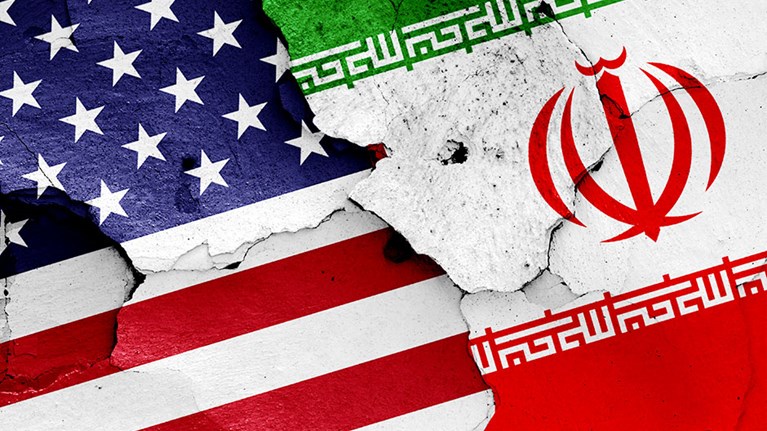
Why is the military escalation between pro-Iranian militias and the United States back in the spotlight? Why has President Joe Biden ordered heavy military strikes in response to attacks by factions of the Popular Mobilization Forces? Does the escalation reflect the sense of failure of the Vienna negotiations?
Or is this another test of strength between the Biden administration and the regime of the mullahs in Iran, taking place in a new light following Ebrahim Raisi’s election to succeed Hassan Rouhani?
These questions and others are currently on the minds of Iranian observers after American fighter planes launched several raids on Iraqi factions of the Popular Mobilization Forces on the Syria-Iraq border, in response to attacks by Iranian forces against U.S. installations in Iraq.
Some claim that the U.S. attacks violate the sovereignty of Iraq and place the Iraqi government in a very precarious position internally. They increase the pressure exerted by pro-Iranian movements and militias to implement the Iraqi Parliament’s decision to expel American forces from Iraq.
But an objective reading of what took place indicates that the mullahs’ regime provoked the Biden administration. Iran tested the limits of its power by urging one of its armed groups in Iraq to carry out an attack on buildings under the control of American forces.
The mullahs probably planned to attack the American forces and to trigger an American response that would further complicate an already confusing Iraqi scene in order to achieve several objectives.
The first objective is an attempt to send a message to Washington, to show that a new phase has started in Iran with Raisi’s election, even before he officially takes office.
The second is to nip in the bud the Iraqi government’s attempts at rapprochement with its Arab neighbors, after Egyptian President Abdel Fattah Al-Sisi went to Baghdad to attend an Iraqi-Jordanian-Egyptian summit. The American side may have been expecting Iranian provocations.
Hence, the swift decision of a military response taken in order to regain the upper hand and affirm American deterrence. Some lawmakers have even expressed concern about committing U.S. forces to a new war in Iraq without congressional approval.
Biden, who has made it a priority to end the United States’ involvement in conflict zones, is facing a new crisis in Iraq. He must convince the American public that what’s happening is not a war in the conventional sense of the word, but sporadic skirmishes to deter pro-Iranian militias from launching new attacks.
American experts warn that a slowdown in the resumption of the initiative and deterrence could result in casualties among U.S. troops in Iraq.
The dilemma for the Biden administration in Iraq and Syria is that pro-Iranian militias now use drones in their operations, a kind of show of force and a blow to American prestige. Overtly, some members of Congress refuse to address these militias for fear of widening the scope of the fight and being distracted from the fight against Islamic State.
In any case, it is clear that the exchange of strikes between pro-Iranian militias and American forces is inseparable from the climate of the Vienna negotiations.
Everything suggests that the sixth round ended with agreements on secondary technical issues. The main points of contention can wait for political decisions by Iranian and American leaders.
“It is time for the countries to decide” declared Iran’s negotiator, Abbas Araghchi, stating that some outstanding issues have been sufficiently negotiated. In this context, the position of the White House may be very difficult and sensitive.
A decision to completely lift sanctions against the mullahs’ regime puts the U.S. administration in a difficult position with its opponents at home, as well as with its Israeli ally. This decision is a free gift to the mullahs.
The latter will emerge with a declaration of victory and the success of their lobbying strategies to force the United States to lift the harsh sanctions imposed by former President Donald Trump. Ultimately, what is happening in Syria and Iraq between Iran and the United States is an echo of what is happening in Vienna.
The military escalation can but show Iran’s will to put maximum pressure on Washington. The United States is well aware that giving in to these pressures puts the Biden administration in a difficult and complex bind.
As a result, any negotiation with the mullahs on issues other than the nuclear program, such as the missile program and regional influence, is totally unlikely.
Salem Al-Ketbi is an Emirati political scientist and former candidate for the Federal National Council.

Leave a Reply
You must be logged in to post a comment.